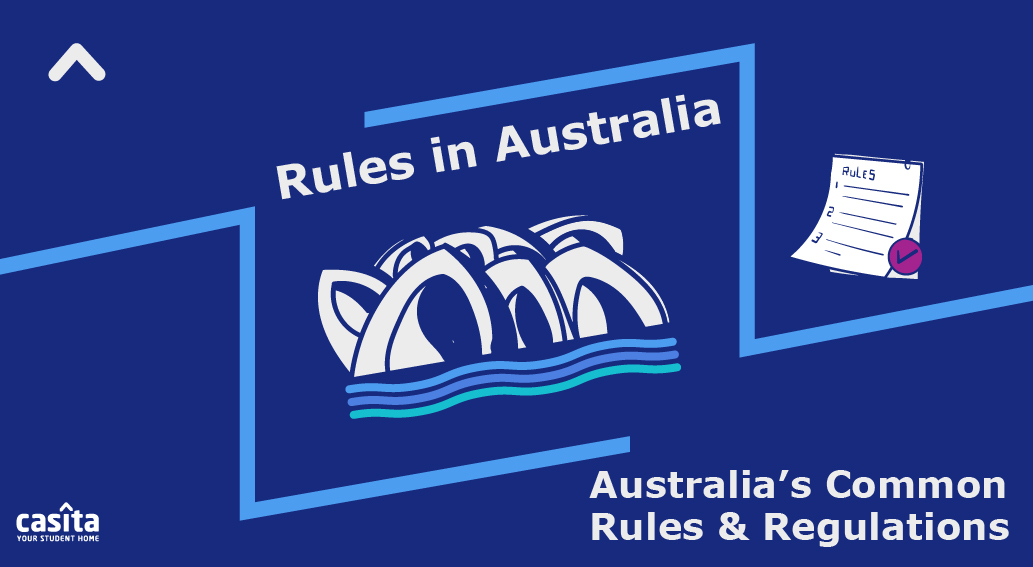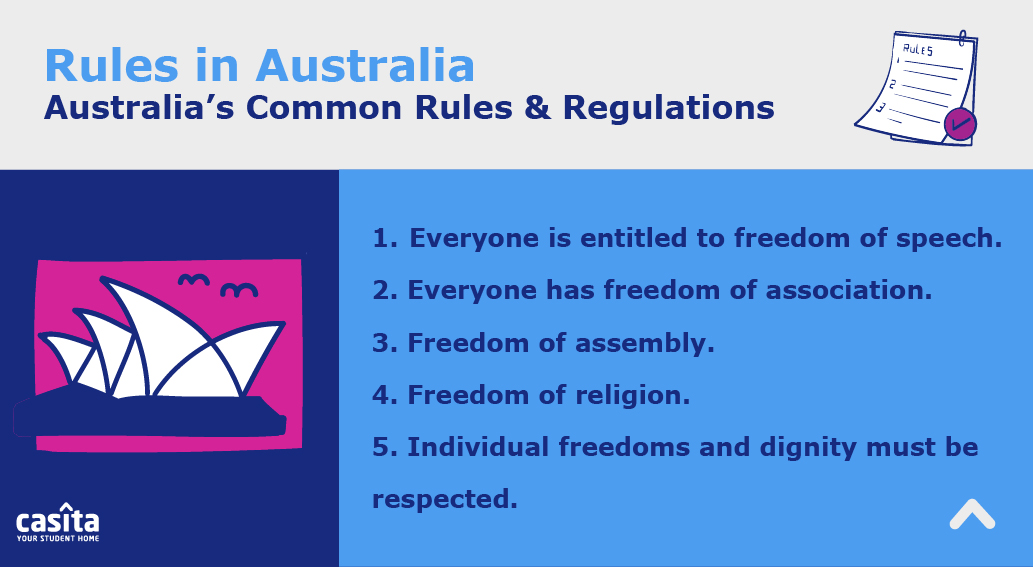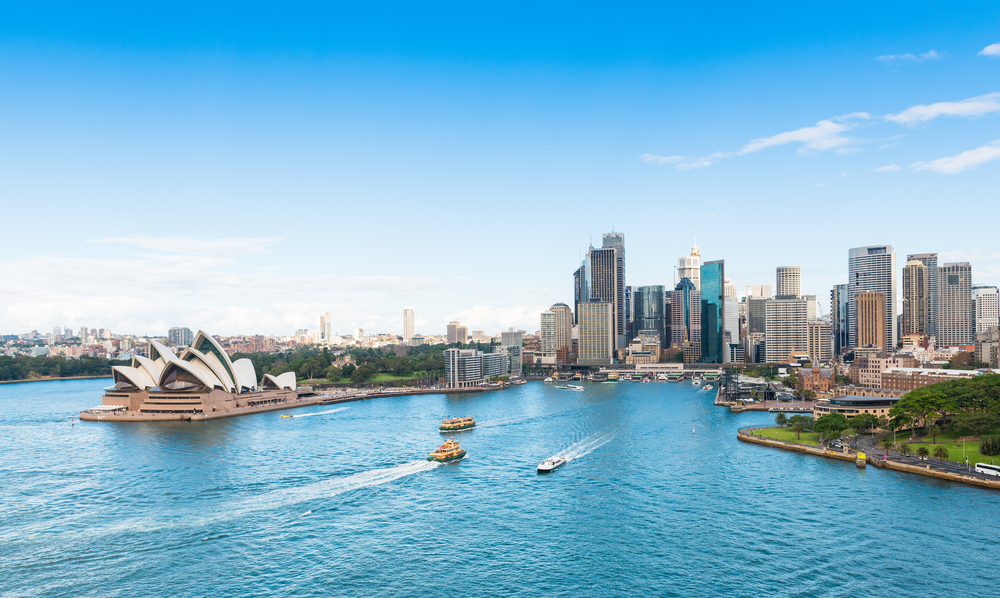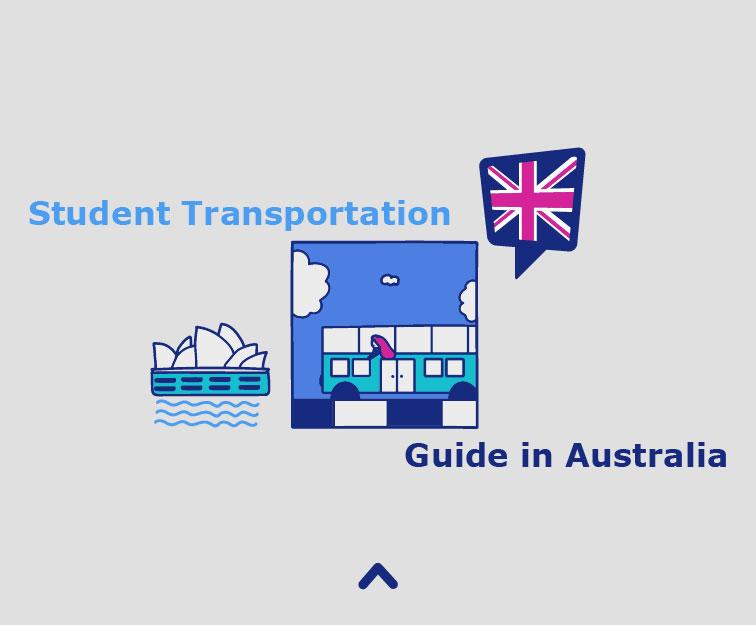Rules in Australia: Australia’s Common Rules & Regulations
Travel Preparation
Exploring
6 mins read
Share

Updated at: 25 November, 2025
Published at: 13 August, 2019
By Samir Badawy
Rules in Australia: Australia’s Common Rules & Regulations
Travel Preparation
Exploring
6 mins read

Updated at: 25 November, 2025
Published at: 13 August, 2019
By Samir Badawy
Share
Australia, as a study destination, is regarded as among the world’s best, with some of the world’s top student cities, which include Melbourne at the fourth position globally, Sydney at the seventh position, and Brisbane at the 22nd according to the QS world rankings in 2024. Australia is also home to some of the world’s top universities, including The University of Melbourne, which ranks 14th worldwide, and The universities of New South Wales and Sydney, which rank 19th worldwide.
With that said, before heading to the country, you must be aware of the rules of Australia. You must get a brief understanding of the Australian legal systems and rules related to travel in and out of the country, traffic, and some general rules. Rules do not necessarily include laws but can also extend to unspoken rules such as etiquette and social norms. In this article, we’ll present some of the strangest Australian laws that can impress your friends during any trivia game.

Australian Legal System
When making a UK vs Australia comparison, one thing must be acknowledged: the Australian legal system emerged from the UK’s legal system. Along with other commonwealth countries, Australia uses common law, where the influence and elements of the United Kingdom's laws are still present.
It is also important to note that Australia is a country of six states, all of which have variations in their rules and have their own constitutions and laws as well as governments. Similarities between these states do exist, however. Australia’s six states are as follows: New South Wales, South Australia, Western Australia, Victoria, Queensland, and Tasmania. You could read more about the UK Common Rules and Regulations and compare them to the rules in Australia.

Rules in Australia You Must Know
International Travel Rules in Australia
All travellers going into Australia require a visa to get in, unless they are Australian nationals or from New Zealand. You must also select the right visa type before arriving in the country. To qualify for visa travel to Australia, you must also meet the Australian health requirements. It is also essential that you meet all the necessary character requirements.
Regarding the Australian student visa, also called the Subclass 500, you must have received an enrollment certificate, have an “Overseas Student Health Cover”, and have what’s known as a “Welfare arrangement” ID under 18. This student visa costs AUD 710, grants you a five-year stay, and allows you to work 48 hours every two weeks.
General Rules in Australia
Some of the general laws in Australia include the following:
Some of the Australian values that must be respected include the following:
Everyone is entitled to freedom of speech.
Everyone has freedom of association.
Freedom of assembly.
Freedom of religion.
Everyone has the right to move freely within the country.
Individual freedoms and dignity must be respected.
Everyone’s diversity must be respected, and everyone should get equal opportunities.
Respect Australian law.
Having equality among individuals.
Obstructing anyone’s freedoms or any of the mentioned rights may result in an individual breaking the law.
Other general rules that you must be aware of are:
Never bribe a government official, as they have strict codes and standards
Be mindful of the different Australian Government’s rules for its other states and territories
Respect Australian police and know that they are there to help
Abstain from any contraband or illegal substances
Uphold people’s privacy
As a tenant or a neighbour, it is also essential to respect your neighbours by not being noisy after specific hours out of respect for them. As part of residential noise restrictions, every state has its own time to keep noise levels down.
Academic Integrity Rules in Australia
Academic integrity refers to acting ethically and truthfully while studying. Doing the opposite is called “academic dishonesty” and can often result in various penalties, depending on the institution.
As a student, you should avoid plagiarism, using illegal 3rd party writing services (someone that writes essays for you), recycling or re-submitting old reports even if they were written by you, making up information, and cheating on exams.
Be very mindful of 3rd parties advertising “writing services”, also called “contract cheating”, as these are illegal, with some even resorting to “blackmail” to tell the institution. These services are penalised when discovered, so you should avoid participating in such activities.
Repercussions for academic dishonesty include having to repeat the unit or assignment, failing the study or course, being expelled from the institution, having your student visa revoked, or facing legal charges in extreme cases. Always be mindful of academic integrity rules in Australia and at your institution.
Traffic Rules in Australia
If you plan on riding, cycling, or even crossing the street, you must be aware of the rules in Australia concerning traffic. Even though regulations may differ between regions, these are some of the most common Australian traffic rules and things you should know concerning traffic in Australia:
Driving Rules in Australia
It is essential to know that if you wish to drive in Australia as an International student, you must have an International driving licence. While driving in Australia, it is also important to know that you should drive on the left side of the road on two-way roads while being mindful of speed limits, wearing your seatbelt, and avoiding using your phone. If you travel long distances, it is useful to know that rest stops are available every 80–100 kilometres.
If your vehicle breaks down, you should remain seated in your car to avoid the sunlight and get the necessary shade until assistance arrives. For any emergency where you would need the assistance of the police, ambulance, or fire brigade, you can contact 000.
Australia also has Toll roads, so to use these roads, you will need to pay. E-tags are also used to pay for using these roads.
Cycling Rules in Australia
Wearing a helmet is also required if you are riding a bike, a motorcycle, or a moped/scooter. Other cycling rules include not having more than two people side by side in the same lane and having a distance of at least 1.5 metres. It is also not allowed to hold onto a moving vehicle while cycling, and you should have at least one hand on the handlebar while cycling. Your bike must be fitted with horns and working lights (which must be used at night). You should also cycle in the correct direction.
Pedestrian Rules in Australia
It is important to avoid jaywalking in Australia and use the designated pedestrian crossings available. It is important not to walk into traffic or obstruct a vehicle’s path. If you plan to go out and become intoxicated, for your safety, order a taxi or have someone sober walk along with you. You should also avoid texting while walking and littering, as fines can apply to these. If no footpath is available, you should walk on the roadside, which faces the approaching traffic.
 Unspoken Rules in Australia
Unspoken Rules in Australia
In this section, we’ll discuss some of the lighter rules in Australia—the unspoken ones. These unspoken rules are similar to social norms and values; even though they do not have legal implications per se, it is important to know them. Some of the unspoken rules in Australia include the following:
Australians do not appreciate bossy individuals, so refrain from giving orders.
Avoid asking extremely personal questions.
Avoid being overdressed for an occasion.
It is always important to say please and thank you in Australia, as you’ll see that these are often used.
When ordering food, simply raise your hand or nod instead of calling over a waiter by yelling or waving.
It is important to respect queues and not skip lines.
Australians are friendly and speak in a friendly manner. The friendlier you are, the better the interactions.
Being punctual is highly appreciated.
It is also appreciated if you don’t have phone calls while on public transportation.
You should always be mindful of other people’s personal space.
When receiving gifts, you are expected to open them in front of the person who gifted them to you.
Australians add the word “mate” as a sign of being friendly at the end of sentences; doing so will make you appear more friendly and will be appreciated.
Strange Australian Laws
In Australia, having more than 50 Kg of rice is illegal due to the Biosecurity Act of 2015. Out of fear of pests and diseases, anyone coming in with more than 50 kg of rice must have it inspected.
In the state of Victoria, installing, modifying, repairing, or testing any electrical systems is illegal unless you are licenced as an electrician.
In Western Australia, you cannot use laser pointers in public.
In Victoria, you can be fined or imprisoned for up to two months for singing vulgar songs in public.
You can receive a fine of up to AUD 2000 if you have up to 50kg of potatoes in Western Australia.
If you’re planning to swim at Melbourne’s Brighton Beach, you must wear neck-to-knee swimwear.
In New South Wales, it is illegal to leave your car unlocked and running.
Kite-flying is prohibited in some Australian states.
At Casita, we encourage our students to do in-depth research about any of their study destinations before travelling. For Australia, this will include the university, the study programme, student accommodation in Australia, and other useful information such as Post Study Work Visa Australia: A Full Guide and Cost of Living in Australia vs UK: A Comprehensive Guide. Other links include fun and useful ones, such as 6 Types of Roommates You’ll Meet in College.
Travel Preparation
Exploring
By Samir Badawy
Share
Travel Preparation
Exploring
Updated at:
Published at:
By Samir Badawy
Share


